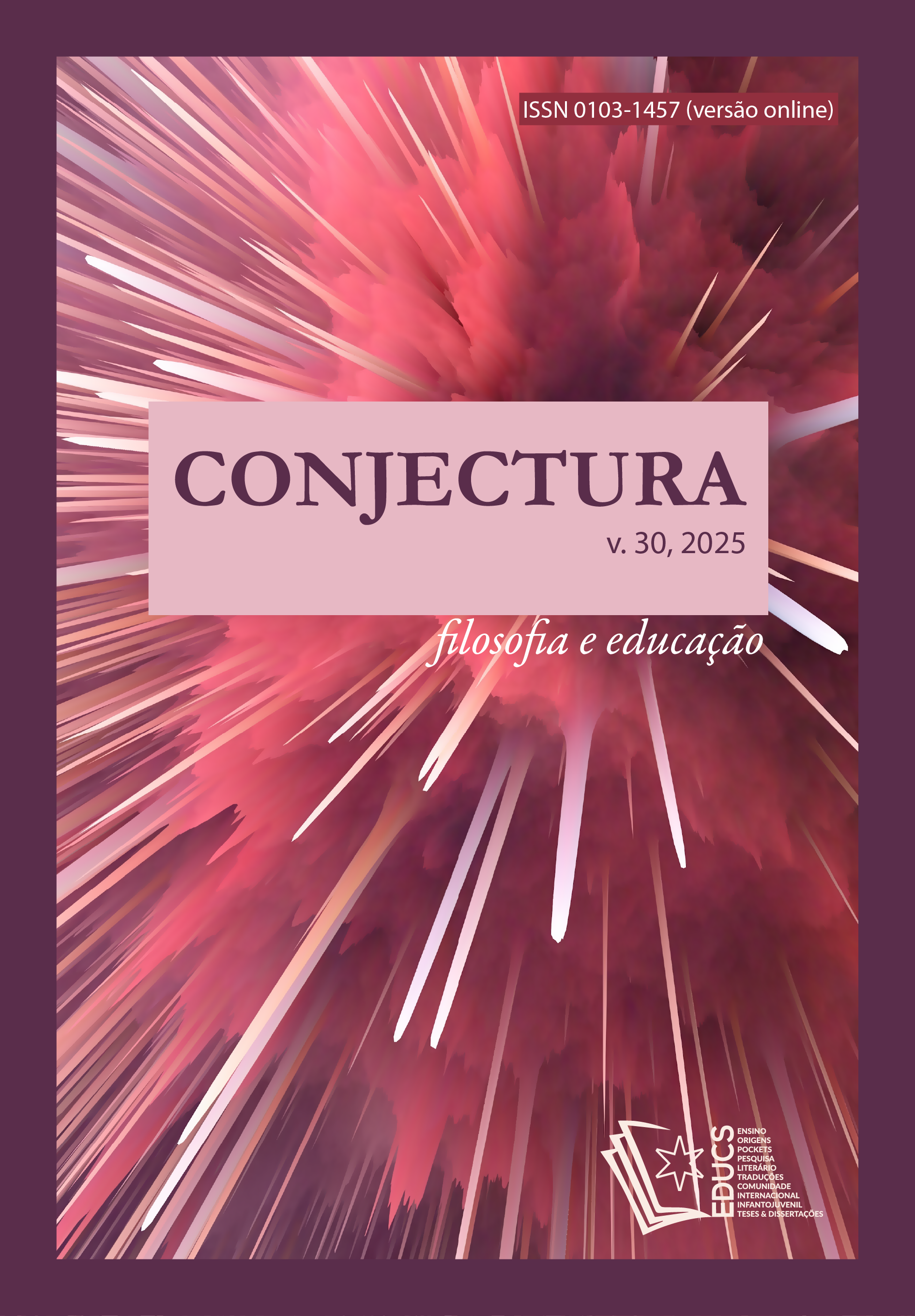O diálogo é uma exigência existencial
Reflexões sobre a prática docente a partir de Paulo Freire e Bell Hooks
DOI:
https://doi.org/10.18226/21784612.v25.e025001Keywords:
Dialogicidade. Prática docente. Experiência. Paulo Freire. bell hooks.Abstract
The present article discusses the importance of dialogicity in teaching practice through the perspectives of Paulo Freire and bell hooks, emphasizing the notions of student participation and experience in the teaching-learning process. Both authors emerged from distinct backgrounds. Brazilian educator Paulo Freire developed a fundamental pedagogical method in "Pedagogy of the Oppressed," which promotes a critical reflection on teaching practices. A prominent work in Freirean thought, it reaffirms the need for political and social struggle among the oppressed class, illustrating the psychological mechanisms of authoritarian, necrophilic, and antidemocratic personality traits inherent in oppressors that reside within all of us. Written during a critical period of democratic closure in Brazil's dictatorial regime, the work remains relevant in contemporary society, emphasizing the constant need for the exchange of experiences, discourse, and ultimately, dialogue, as a means of constructing pedagogical and social identity. On the other hand, American writer bell hooks, influenced by Freirean thought, particularly in "Teaching to Transgress," gives voice to marginalized segments such as women—highlighting feminism in her theory and indicating that alongside class analysis, central attention must also be paid to gender and racial markers. She proposes an education of diversity grounded in experience and the cultivation of sensitivity through emotional connections. The methodology employed was bibliographic research focused on the themes presented in the cited essays of both authors. In conclusion, the study asserts that teaching practice is a collective endeavor between educator and student, centered on dialogicity as essential to human constitution and development.
References
ADORNO, Theodor. Tabus acerva do magistério. In:___________. Educação e emancipação. Trad. de Wolfgang Leo Maar. São Paulo: Paz e Terra, 2008. p. 97-117.
BENJAMIN, Walter. O narrador. In: ___________. Obras escolhidas. Magia e técnica. Arte e política. Trad. de Sergio Paulo Rouanet. São Paulo: Brasiliense, 2010. p. 206.
BRASIL. Ministério da Educação. Base Nacional Comum Curricular. Brasília: MEC, 2018. Disponível em: http://basenacionalcomum.mec.gov.br/abase/. Acesso em: 03 jan. 2024.
FREIRE, Paulo. Pedagogia da autonomia: saberes necessários à prática educativa. Rio de Janeiro: Paz e Terra, 2011. p. 22-23.
FREIRE, Paulo. Pedagogia do oprimido. Rio de Janeiro: Paz e Terra, 2019.
HOOKS, bell. Ensinando a transgredir: a educação como prática da liberdade. Trad. de Marcelo Brandão Cipolla. São Paulo: Martins Fontes, 2019.
HOOKS, bell. Ensinando pensamento crítico: sabedoria prática. Trad. de Bhuvi Libanio. São Paulo: Elefante, 2020.]
HOOKS, bell. Tudo sobre o amor: novas perspectivas. Trad. de Stephanie Borges. São Paulo: Elefantes, 2021.
HOOKS, bell. Teaching Critical Thinking. London: Routledge, 2009.
LARROSA, Jorge. Tremores: escritos sobre experiência. Trad. de Cristina Antunes e João Wanderley Geraldi. Belo Horizonte: Autêntica, 2015.
Downloads
Published
How to Cite
Issue
Section
License
1. The publication of the originals will imply the assignment of copyright to Conjectura Journal.
2. Texts cannot be reproduced without authorization from the Journal after acceptance.









